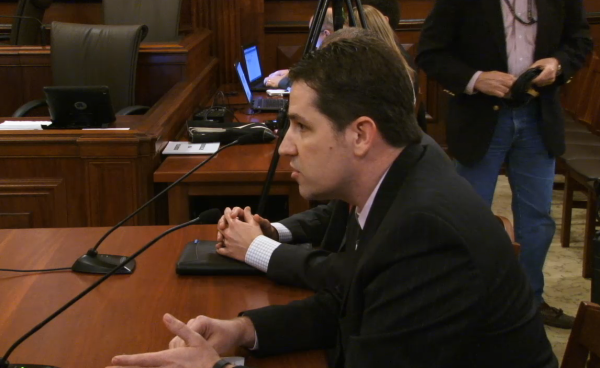
Eric Foster, Vice President for Substance for Policy, Illinois Alcoholism and Drug Dependence Association
OP-ED: Illinois behavioral healthcare providers are faced with many daunting, financial problems uncertainties as they struggle to deliver quality mental health and addiction treatment services to fathers, mothers, and children in need.
The “Unbalanced Budget Response Act” would make their job worse.
First, since Fiscal Year 2009 through Fiscal Year 2015, Illinois eliminated state funding for addiction prevention, cut addiction treatment by 40% and mental health treatment by nearly 25%. In Fiscal Year 2016, Governor Bruce Rauner cut behavioral health providers by another 25%.
Second, over the past several years, behavioral healthcare providers have had to shoulder the vast implementation expansion requirements for the Parity of Mental Health and Substance Abuse Act, the implementation of the ACA, and the shift from state GRF/Medicaid to Medicaid Managed Care. Moreover, non-profit providers have had to absorb the additional expense associated with implementation of Electronic Health Records and electronic billing.
These herculean bureaucratic demands had to be implemented while simultaneously being hit by the legislature and governor with budget reductions in overall funding for services and no meaningful increase in reimbursement rates to actually cover the growing costs of doing business, such as implementing new mandates.
A recent report from the Illinois Partners for Human Services has found that stagnant reimbursement rates have had significant negative impact on the provider’s ability to cover basic operation costs. Low rates contribute to high employee turnover. Low rates blunt the expansion services to meet the growing needs of Illinois citizens. Low rates leave Illinois exposed to each new drug crisis.
The report also shows that in order to be current with cost of living, reimbursement rates for substance abuse treatment would need to increase by 27% and rates for community mental health services would need to increase by 16%.
Meanwhile, the “Unbalanced Budget Response Act”, Senate Bill 2789, would grant the governor the power to reduce rates unilaterally and without appeal. That authority to gut the last remaining financial life-line that has helped to keep Illinois’ limping behavioral healthcare system function would be an abrogation of the legislature’s own authority and of its own responsibility to the constituents to whom they serve.
Behavioral healthcare providers will be unable to sustain a service if they cannot cover the costs of rendering that service. Granting authority to arbitrarily reduce provider reimbursement rates would be a fatal blow to an already crumbling mental health and substance abuse treatment system.
The Illinois Alcoholism and Drug Dependence Association vigorously opposes this legislation.
Eric Foster, Vice President for Substance Abuse Policy, Illinois Alcoholism and Drug Dependence Association